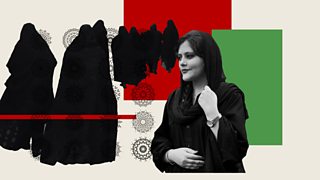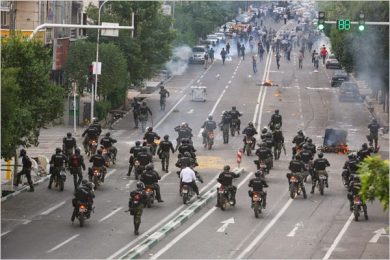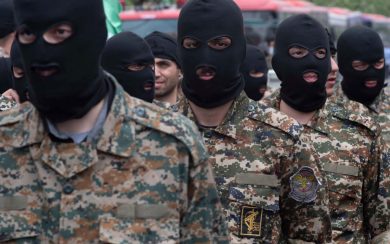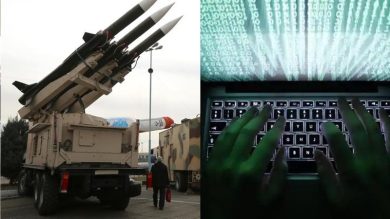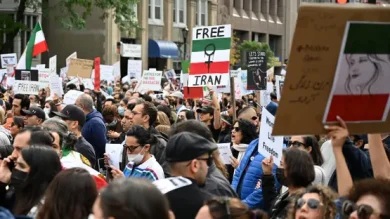The Islamic Revolutionary Guard Corps (IRGC), established in 1979 to safeguard the Islamic Revolution, has evolved into a dominant force within Iran’s political, military, and economic spheres. Over the decades, the IRGC has expanded its influence beyond military affairs, embedding itself deeply into Iran’s economic fabric, particularly in the oil and gas sectors. This report delves into the mechanisms by which the IRGC exerts control over Iran’s economy, the implications of its dominance, and the challenges it poses both domestically and internationally.
1. The IRGC’s Ascendancy in Iran’s Oil and Gas Sectors
The IRGC’s involvement in Iran’s oil and gas industries has grown significantly over the past decade. Reports indicate that the IRGC now manages up to 50% of Iran’s oil exports, a substantial increase from approximately 20% three years prior. This expansion has been facilitated by the IRGC’s adeptness at circumventing international sanctions and leveraging its extensive network of front companies and covert logistical operations.
2. Mechanisms of Control and Revenue Generation
a. Utilization of Front Companies and the “Ghost Fleet”
To evade international sanctions, the IRGC employs a network of front companies and a “ghost fleet” of tankers. These vessels often operate under false identities, disable tracking systems, and conduct ship-to-ship transfers to obscure the origin of the oil. This clandestine network enables the IRGC to continue exporting oil and generating revenue despite stringent sanctions.
b. Khatam al-Anbiya Construction Headquarters
The IRGC’s economic arm, Khatam al-Anbiya, is one of Iran’s largest contractors, overseeing numerous infrastructure projects, including those in the oil and gas sectors. This organization secures no-bid contracts, consolidating the IRGC’s economic influence and providing a steady stream of revenue.
3. Implications of IRGC’s Economic Dominance
a. Diversion of National Resources
The IRGC’s control over oil revenues diverts substantial funds from the national budget to its own coffers, enabling it to finance military operations and support allied groups across the Middle East. This diversion undermines the state’s ability to allocate resources effectively for public services and development.
b. Erosion of Economic Transparency
The opaque nature of the IRGC’s financial activities undermines economic transparency, complicating efforts to implement effective fiscal policies and deterring foreign investment. The lack of accountability and oversight in the IRGC’s economic dealings poses significant challenges to economic reform and growth.
c. Suppression of Private Sector Growth
The IRGC’s preferential access to resources and contracts stifles competition, hindering the growth of Iran’s private sector and limiting economic diversification. This monopolistic control discourages entrepreneurship and innovation, further entrenching the IRGC’s economic dominance.
4. International Challenges and Sanctions Evasion
Despite international sanctions aimed at curbing Iran’s oil exports, the IRGC’s sophisticated evasion tactics have allowed it to maintain significant revenue streams. The use of front companies and covert shipping methods complicates enforcement efforts and underscores the need for coordinated international responses.
5. The Broader Economic Impact
The IRGC’s entrenchment in Iran’s economy has far-reaching implications:
• Economic Inefficiency: The IRGC’s monopolistic practices lead to misallocation of resources and inefficiencies in the economy.
• Corruption: The lack of oversight and accountability fosters an environment conducive to corruption and rent-seeking behavior.
• Social Inequality: The IRGC’s control over economic resources exacerbates social inequalities, as wealth and opportunities are concentrated within the organization and its affiliates.
Conclusion
The IRGC’s pervasive influence over Iran’s oil and gas sectors exemplifies the intertwining of military power and economic control. Its dominance poses significant challenges to economic reform, transparency, and international diplomatic efforts. Addressing the IRGC’s economic influence is crucial for promoting sustainable development and regional stability.
Join Our Newsletter!
Stay informed with the latest updates, news, and ways to take action in the fight for justice and global security. Sign up now to get updates delivered straight to your inbox!

